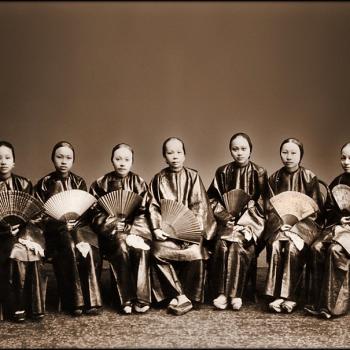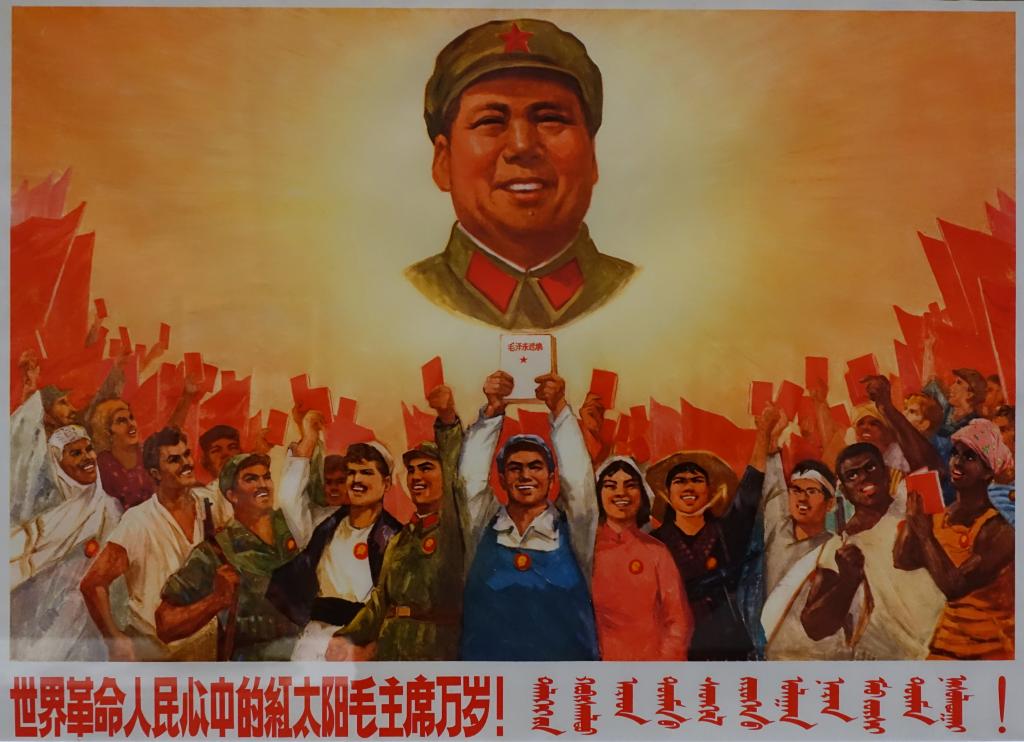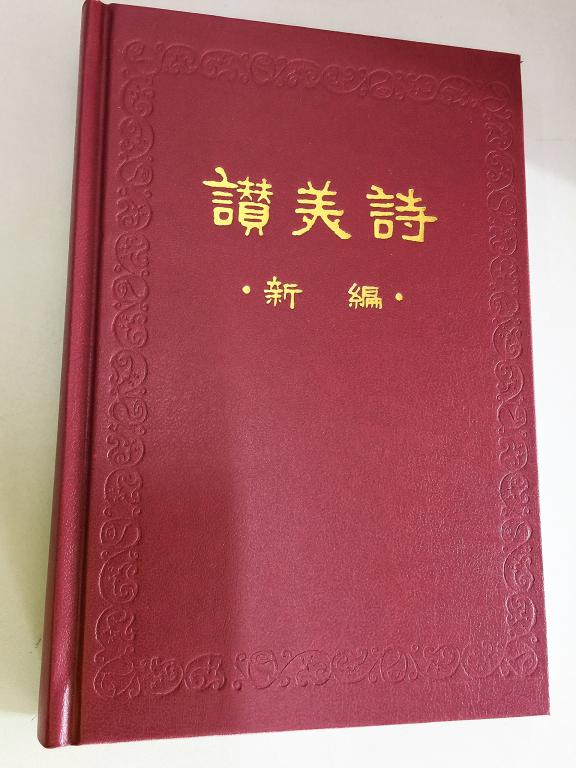Today’s guest post comes from Carrie Anne Hudson, whose earthy insights always stimulate one’s thoughts and often make you laugh and cry at the same time. She has written about the practical ins-and-outs of family life overseas in her book Redefining Home: Squaty Potties, Split Pants, and Other Things that Divide My World.
This morning, I sat at the back of a room full of Chinese brothers and sisters. An older brother turned around to glance at the temperature of the air conditioner. A minute later he leaned over to a sister and told her to cover up her shoulders with a jacket so she doesn’t get cold.

On countless occasions living in China, I’ve been told to eat certain foods, stop sitting on cold floors, and just last week someone took a bag of salt from my hands and exchanged it for a different one, which they presumed (rightly) I’d prefer.
White-knuckled Independence
Because I grew up in America, independence is not just a value, it’s an identity. I’ve found myself fiercely protecting my independence at every corner. We Americans charge the hill while screaming, “You can’t tell me what to do!” From those first steps onto American soil, we’ve been fighting for our independence from everyone and everything. But the Chinese church has taught me much about independence (and interdependence).
Put simply, it’s impossible to be a church while having a white-knuckled hold on independence.
The Chinese church understands obligation in a way that initially made me angry. I saw their advice as intrusive. I took their care and spun it in my mind as nagging. But for them, not to say something would be most unloving because they have an obligation to me as a friend.
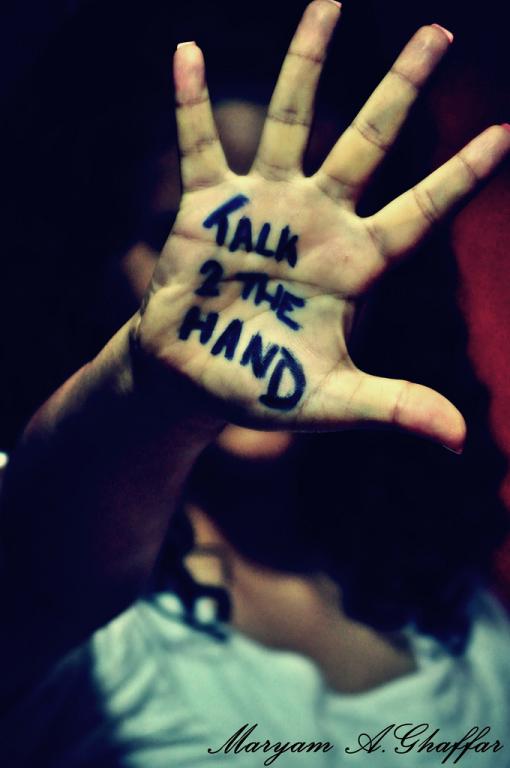
When a friend brings you vinegar for your cough and you say, “Thank you,” they respond with 是应该的 (“It’s what I should do”). Oftentimes, friends won’t even say “thank you” because relationships bring reciprocal obligation. The receiver understands that one day they will be able to help the giver. And so the cycle goes on and on.
My Chinese friends absolutely admit that there are strings attached when giving time and gifts. As an American, I want to give and receive without strings because relational obligation feels like a prison.
I don’t want to owe nobody!
As Westerners, we recoil at the idea we would owe someone anything. But here’s the thing: relational obligation breeds commitment.
Here’s a great quote from an article I read:
“In America, the obligation of the community at any point in time is seen generally as backup to personal responsibility and not the first resort.”
In other words, we solve our own problems and if that fails, then we call someone…maybe.
The helping of one another isn’t based on whether or not you like the person, but because you want to maintain relationship with them in the future. It’s easy for Westerners to label this dynamic “manipulative.” But both a giver and receiver understand that relational currency works within obligation.
In America, relational currency is one’s ability to be an attraction. The moment one person does something to make them less attractive as a friend, the relationship dissolves.
No Obligation. No Love.
Imagine how Chinese would respond to the following quote.
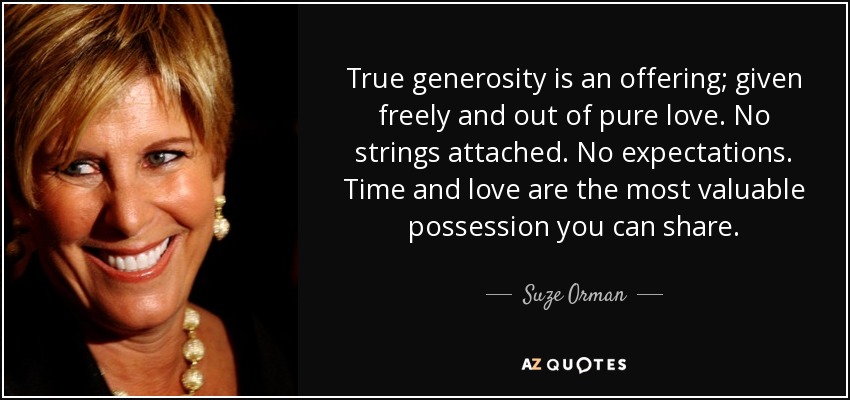 I think many Chinese Christians would say that something “Given freely and out of pure love. No strings attached. No expectations,” isn’t actually pure love. They would remark that “no strings attached” is most unloving to the person because it keeps them isolated from others. They would most likely say that giving something generously and with strings is most loving and natural because we belong to each other.
I think many Chinese Christians would say that something “Given freely and out of pure love. No strings attached. No expectations,” isn’t actually pure love. They would remark that “no strings attached” is most unloving to the person because it keeps them isolated from others. They would most likely say that giving something generously and with strings is most loving and natural because we belong to each other.
And they also wouldn’t call the above quote “true generosity” because it’s a one-time transaction. True generosity is a commitment to meet one another’s needs as a committed family member. We from the American church need to understand that we belong to one another.
Racial reconciliation, economic disparity, church division will continue to infect the church unless we feel obligated to one another. This is how we get past those issues that put us in separate corners of the church. We are afraid of obligation because we think it’s the antithesis of freedom.
But what is more freeing than to know you can go forward into the world, serving and ministering in hard places, all the while knowing you’ve got a band of brothers in your corner ready to fight with and for you?
That’s freedom that will transform the church.









